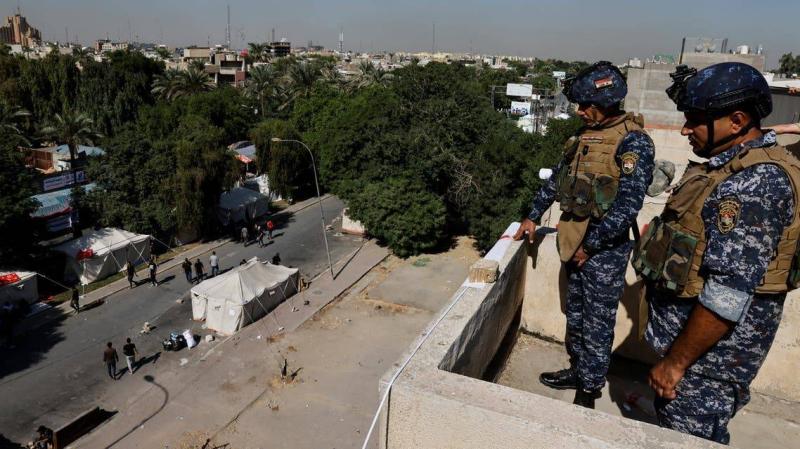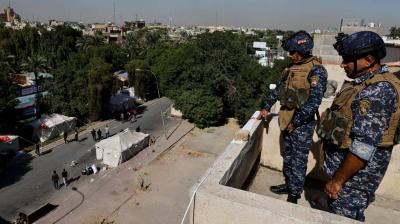Supporters of the Popular Mobilization Forces and Iraqi factions, which saw an unprecedented decline in the parliamentary elections, continue their sit-in in the Green Zone of Baghdad since last week. Last night, they attempted to escalate their protest by breaching the first defensive line in the Green Zone; however, security forces repelled this attempt. This action followed threats from Asa'ib Ahl al-Haq to invade the heavily fortified area in protest against what they described as "fraud" during the electoral process held on October 10, which recorded a noticeable decline for the Opening Alliance, which lost dozens of seats in parliament. Video clips showed the attempt by Popular Mobilization supporters to advance, but security forces resisted them.
Hundreds of Popular Mobilization supporters initiated a sit-in last Tuesday in central Baghdad, setting up dozens of tents on a road leading to the Green Zone, which houses government headquarters and several embassies, including the U.S. Embassy. They condemned the "election fraud" and demanded a recount of all votes, while final results are expected to be published in the coming weeks after the electoral commission has completed reviewing the submitted appeals.
It is noteworthy that the Opening Alliance, representing the Popular Mobilization Forces and a strong ally of Tehran, secured about 15 seats in the October 10 elections, according to preliminary results, after being the second-largest power in the previous parliament with 48 seats. Observers believe that the loss recorded by the Popular Mobilization Forces, according to initial results, is due to voter disappointment with their political performance and failure to meet their aspirations, in addition to the violence and repressive practices attributed to Tehran-aligned factions. Conversely, the Sadrist Movement, led by Shiite cleric Muqtada al-Sadr, garnered over 70 seats, according to preliminary results, placing it at the forefront. However, selecting a prime minister and forming political blocs and alliances in the new parliament may take a long time.




